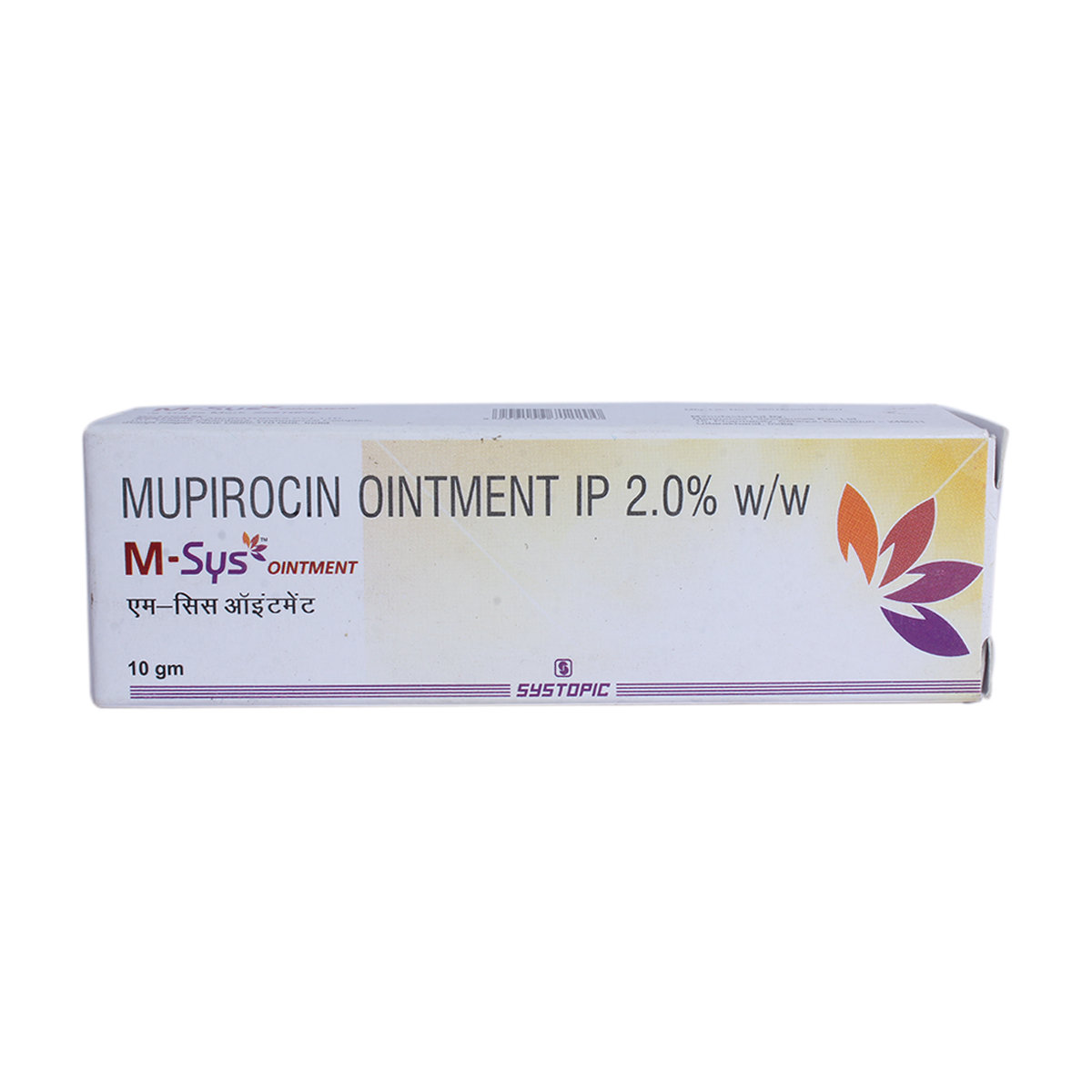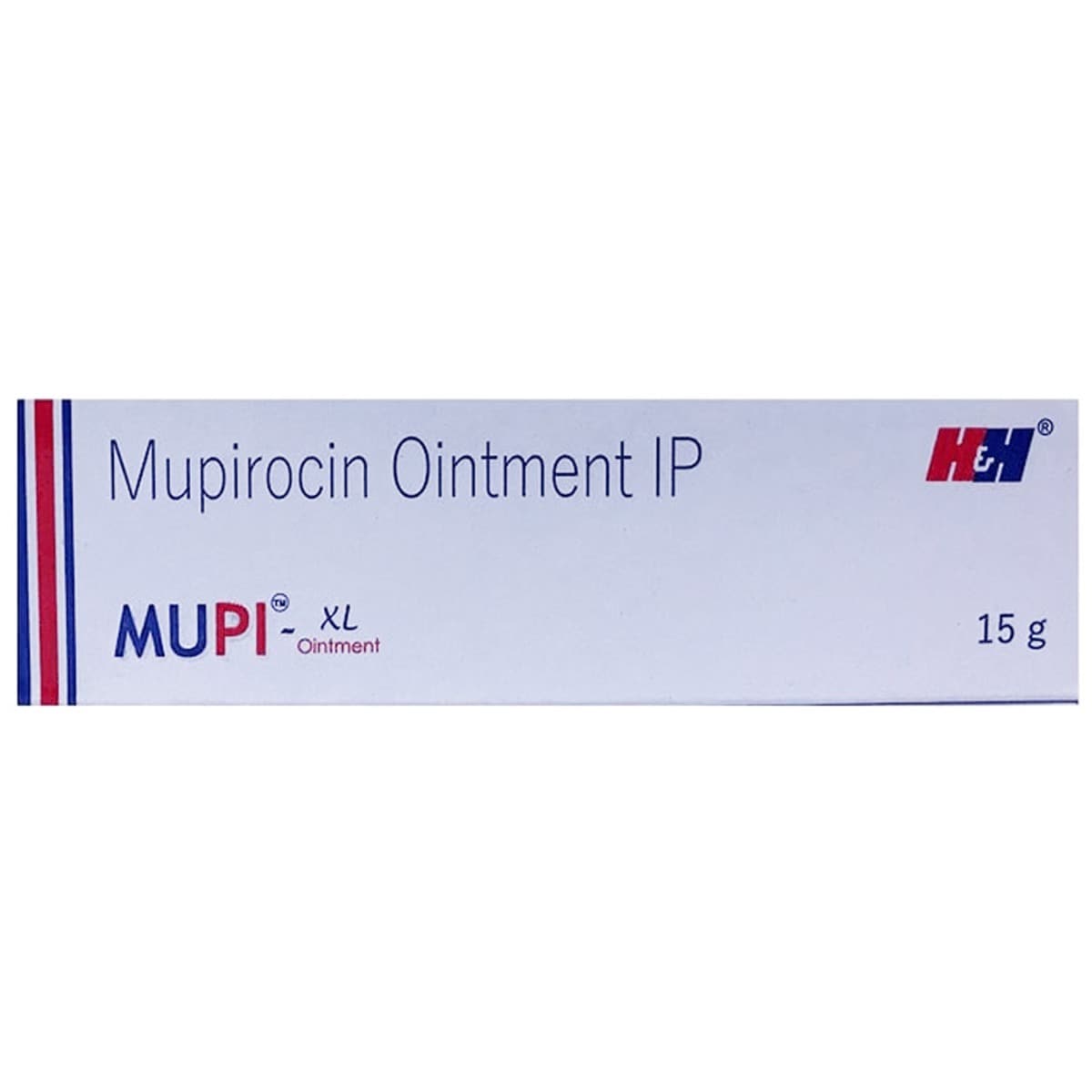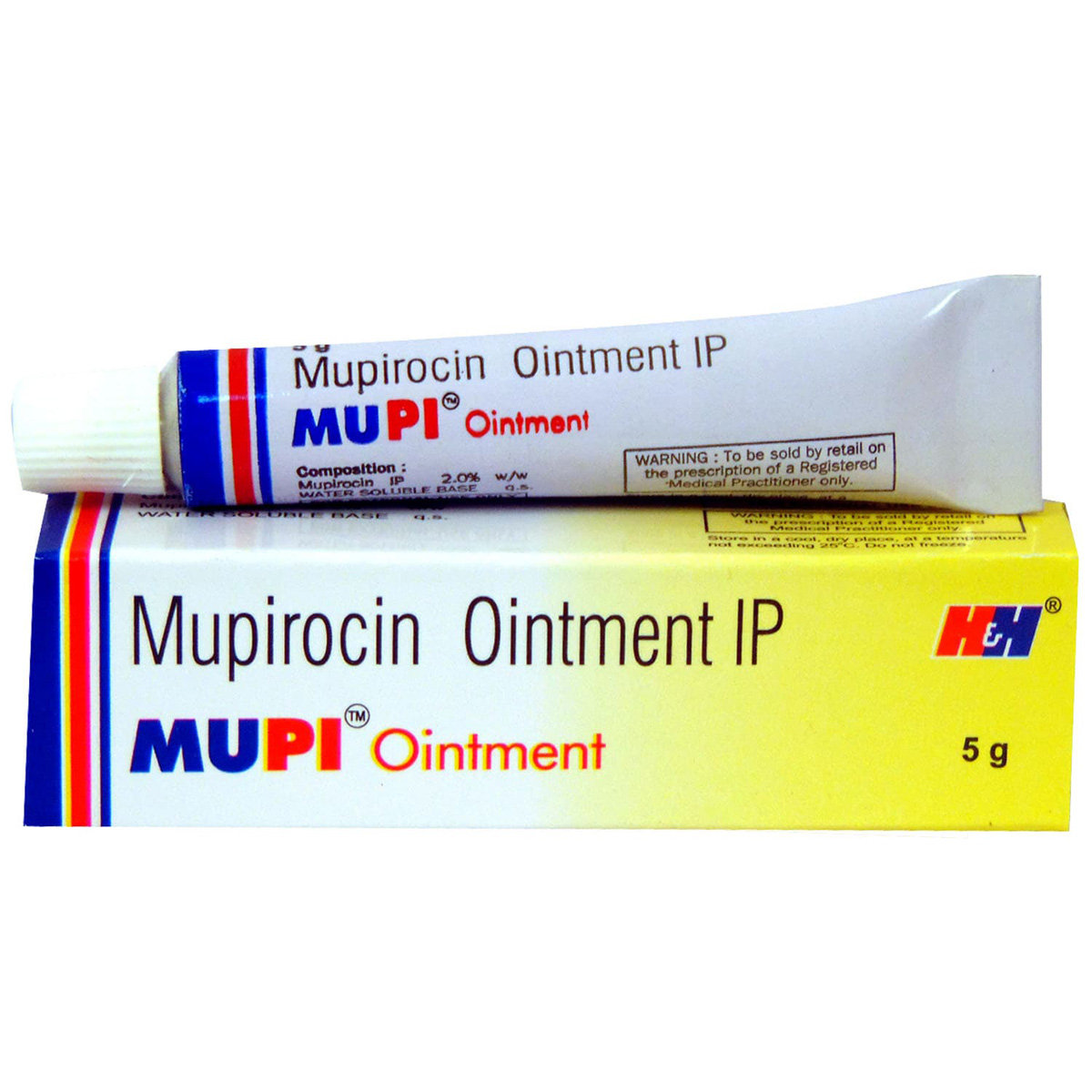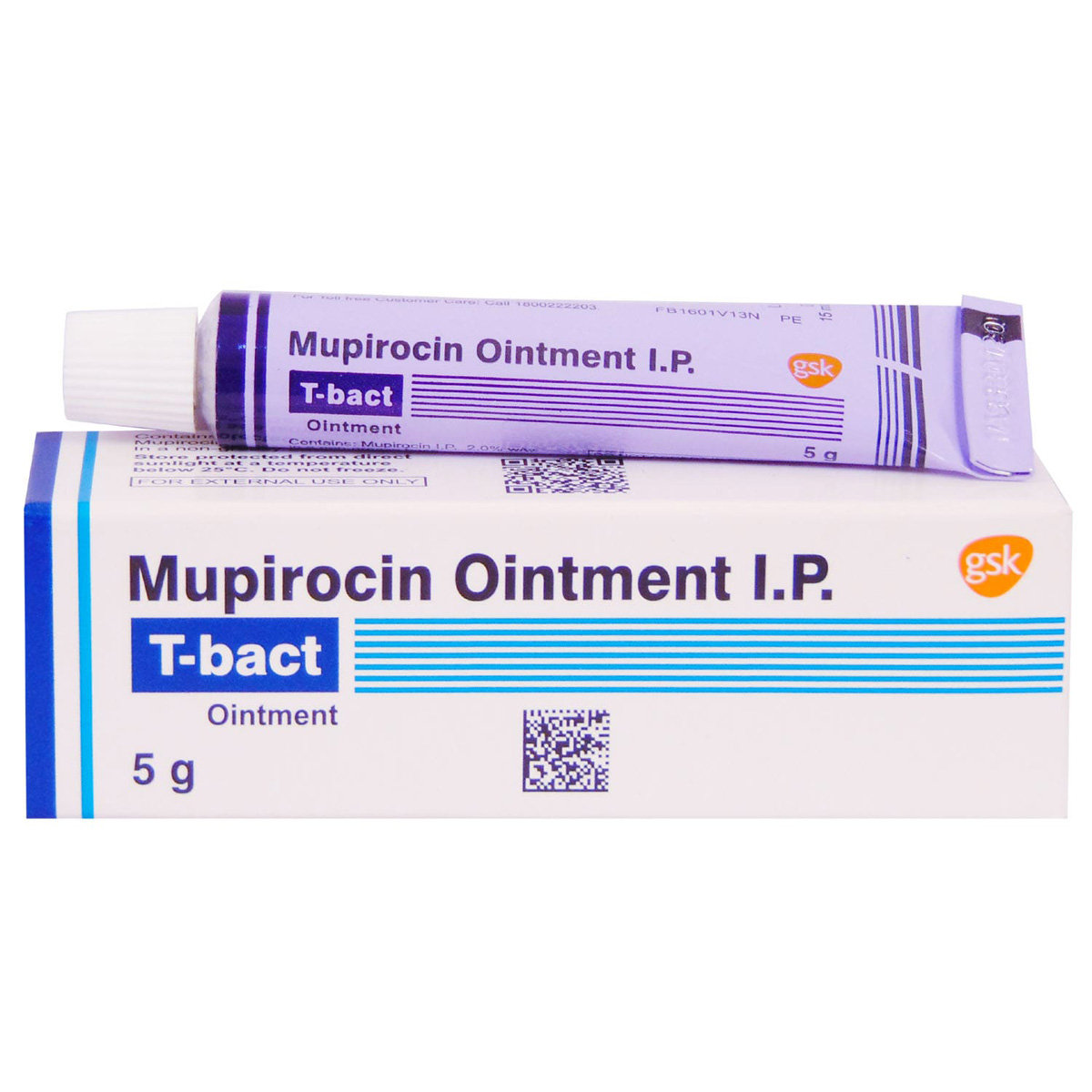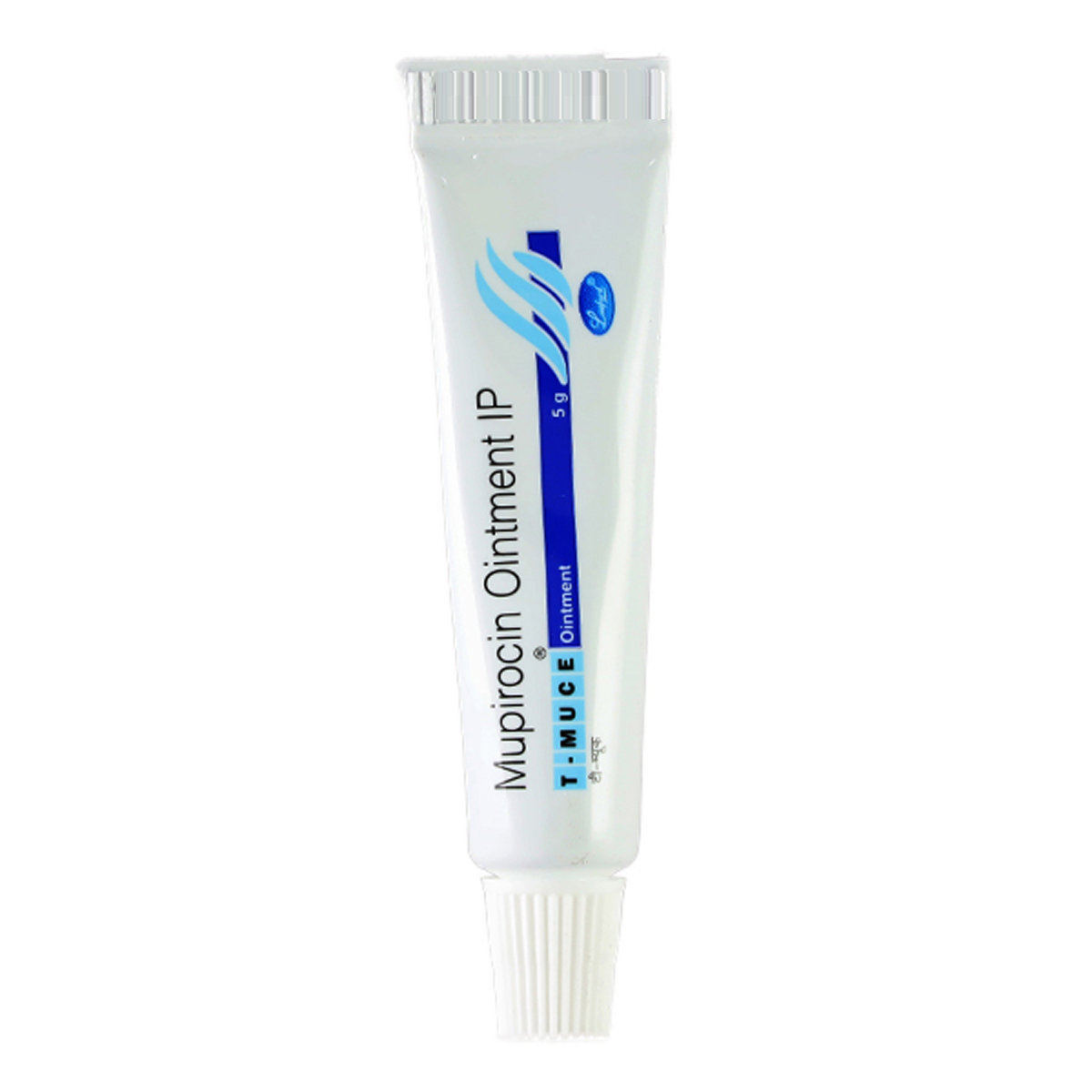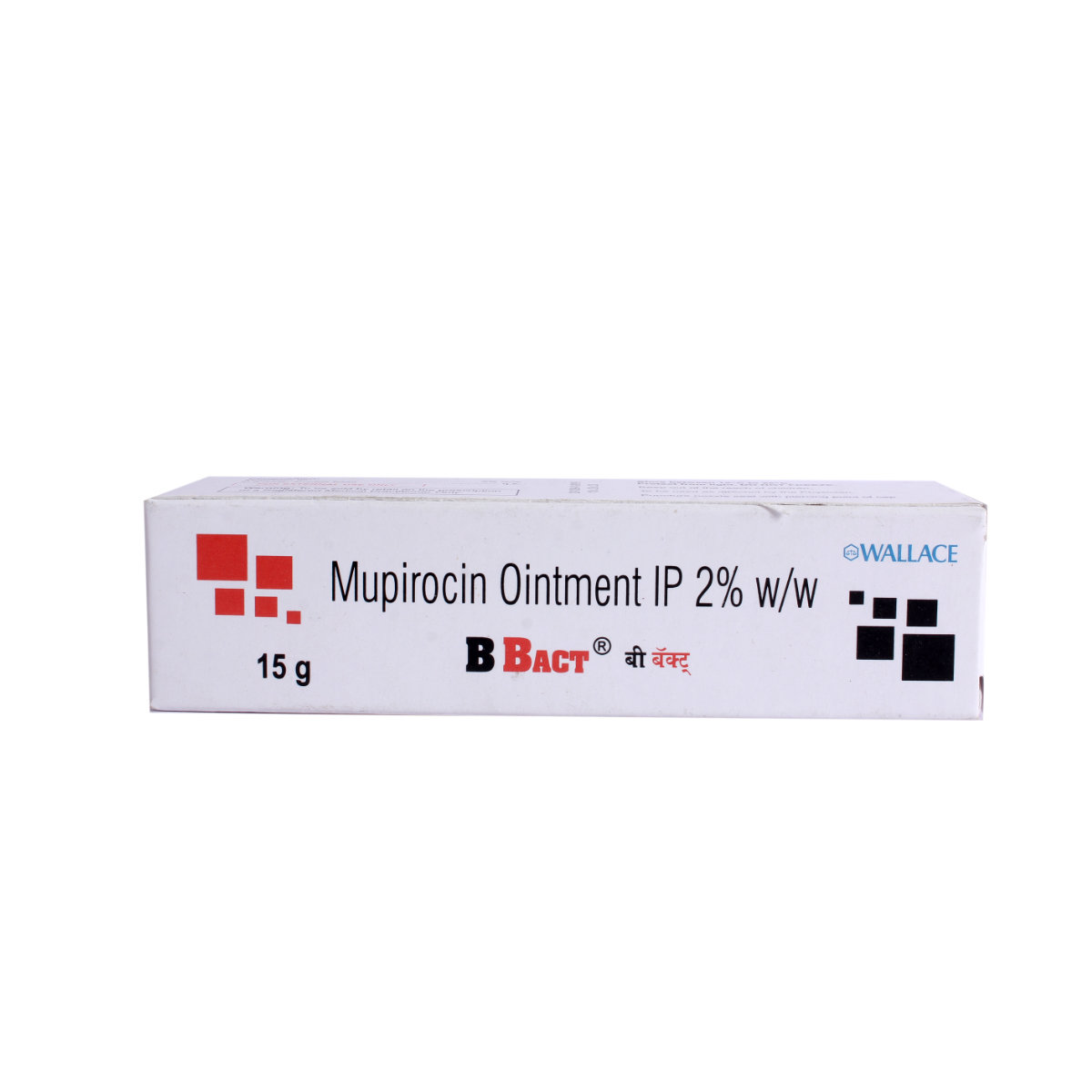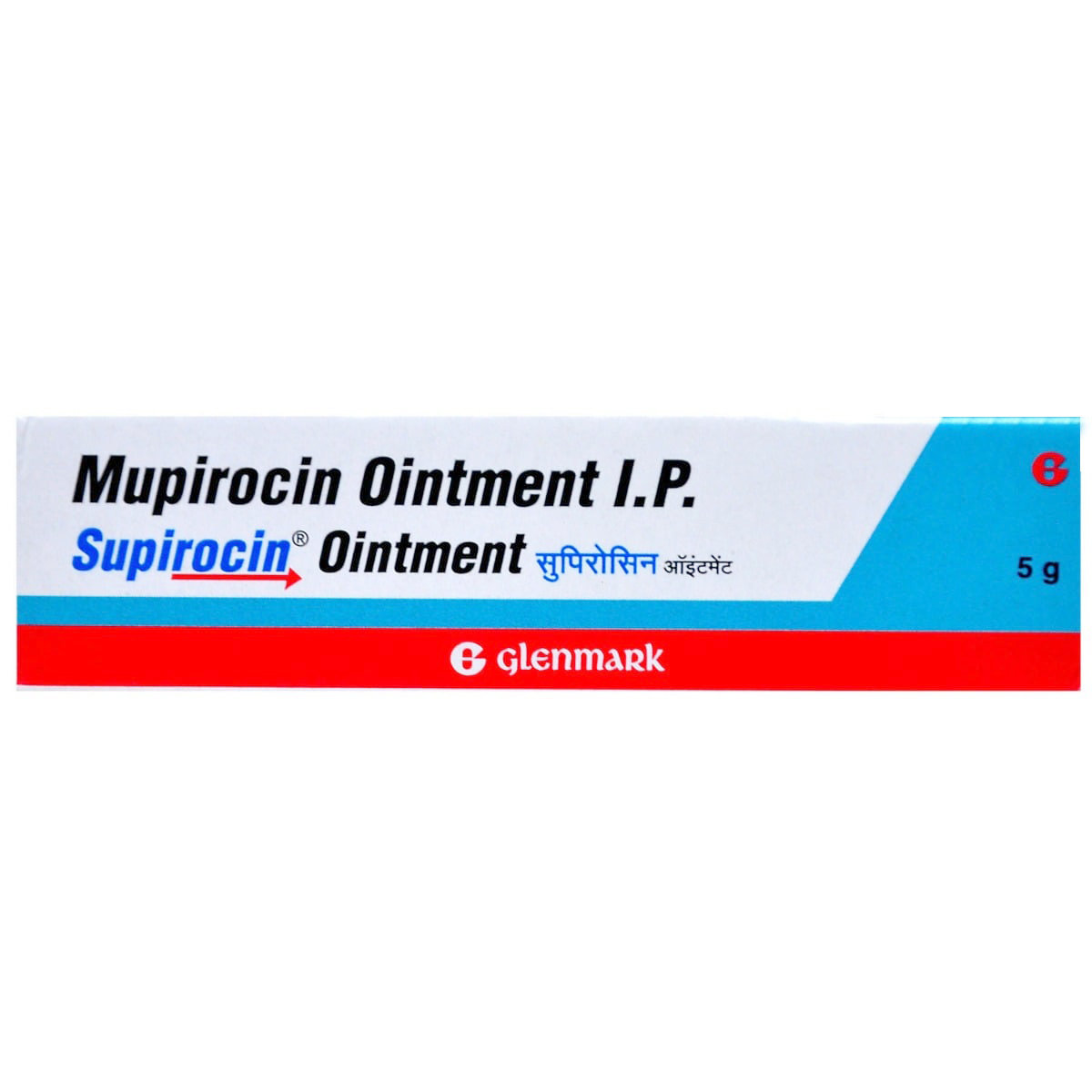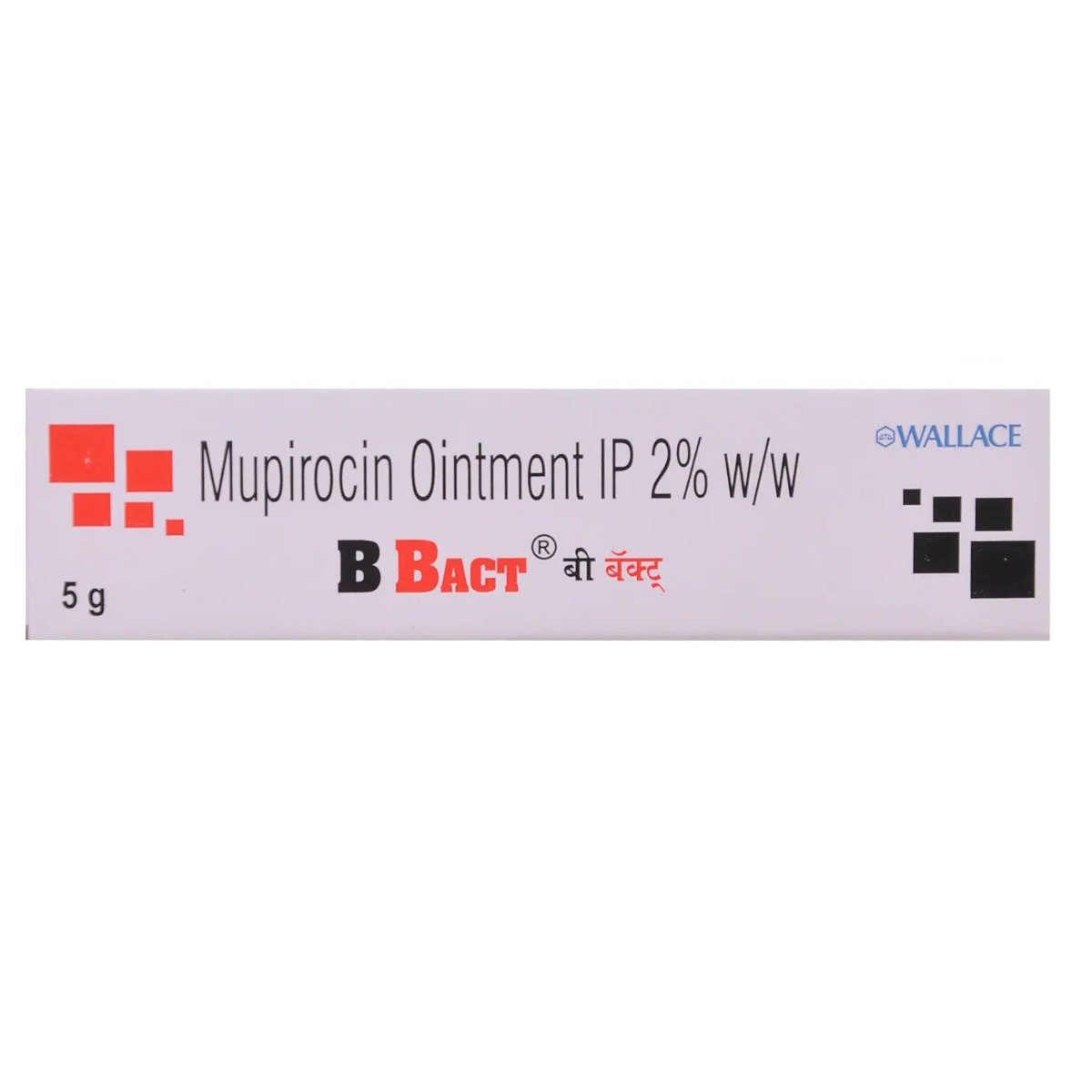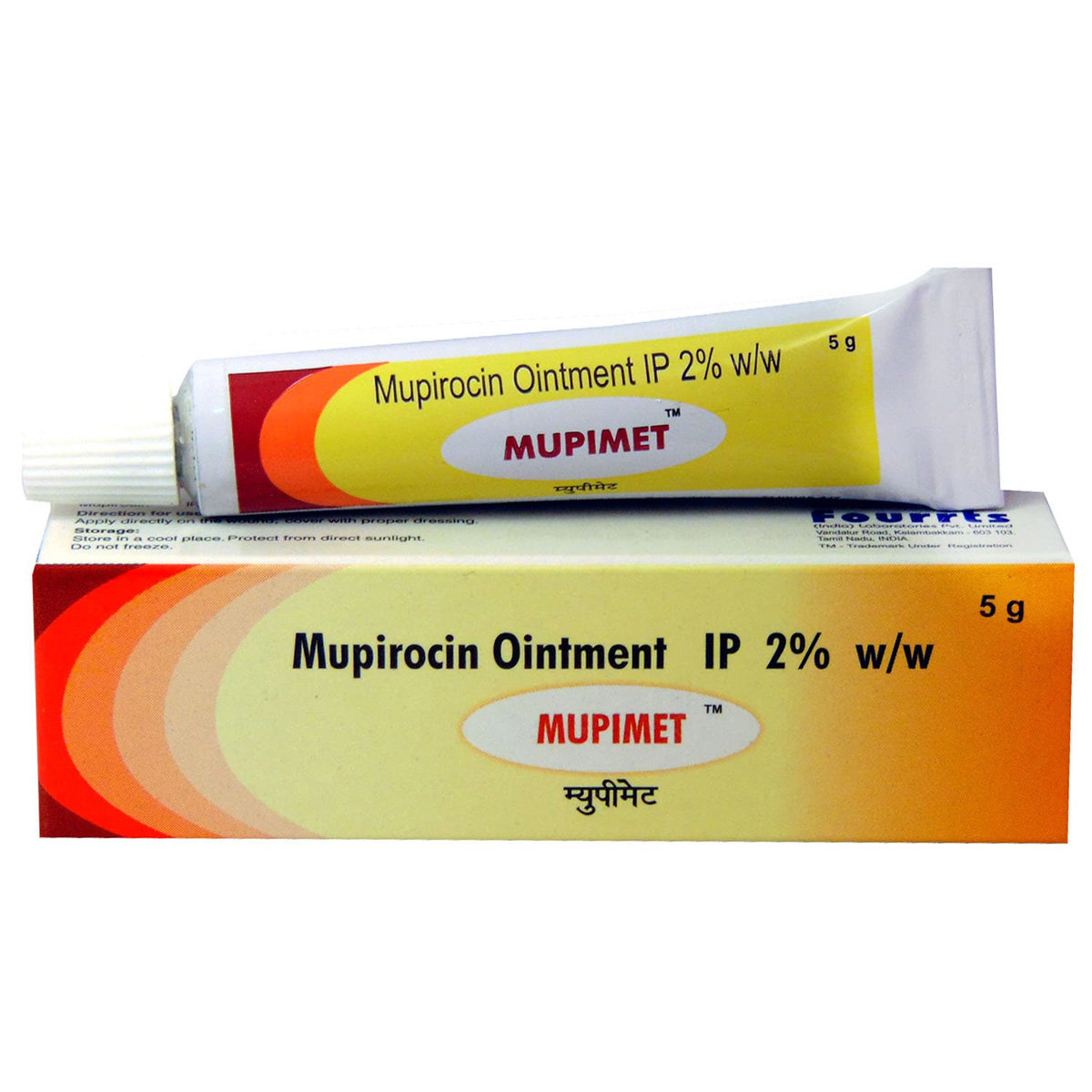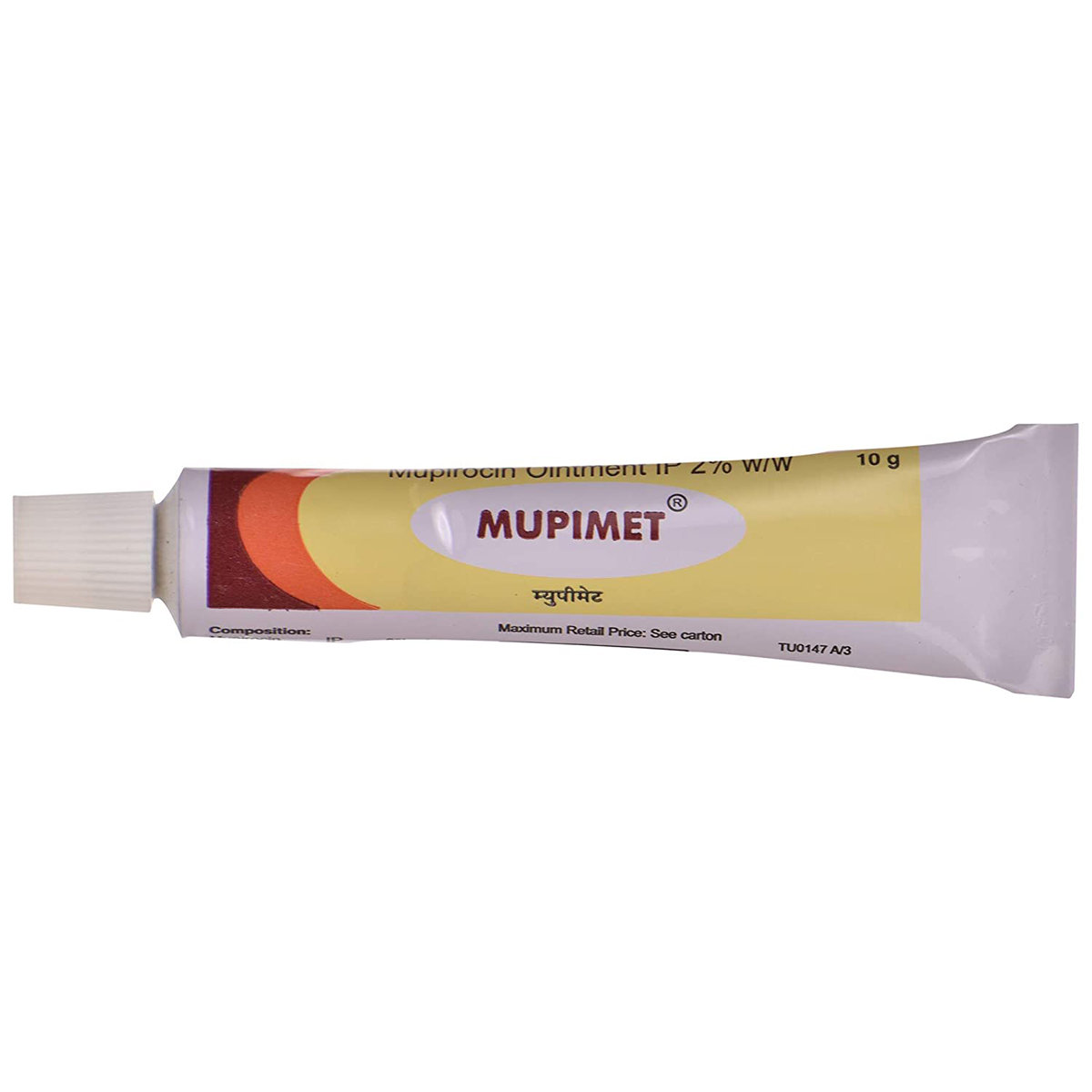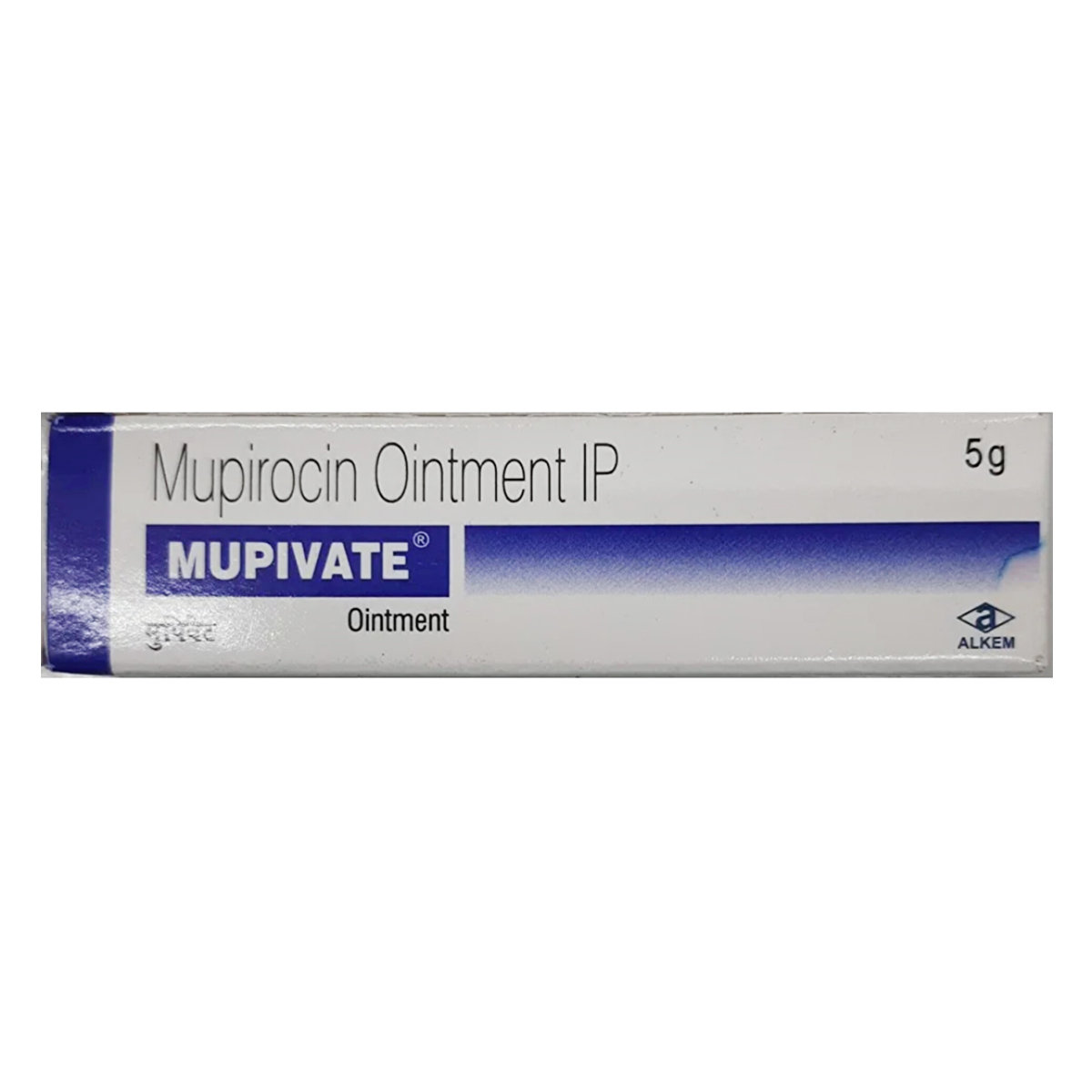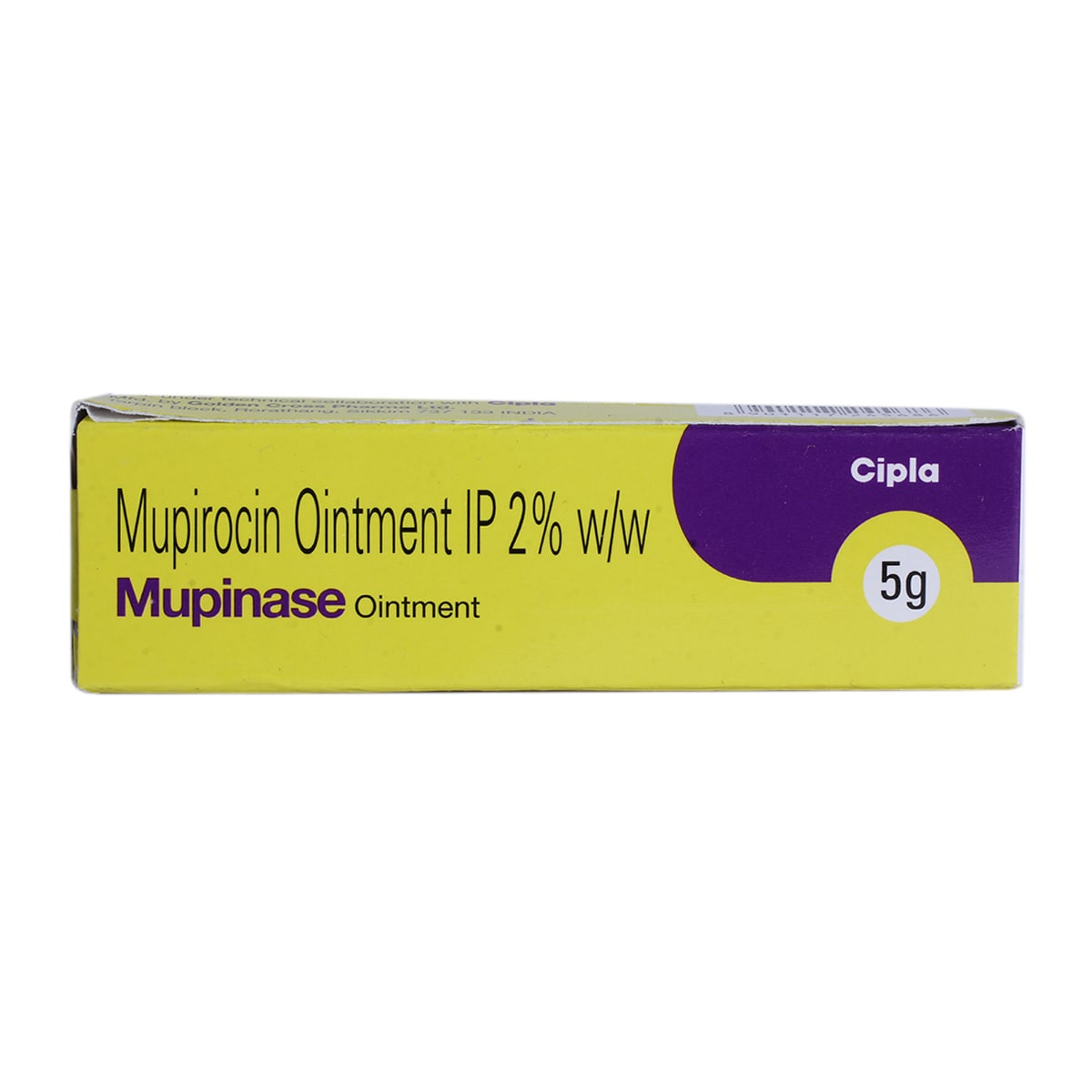Mupicip 2% Ointment 10 gm
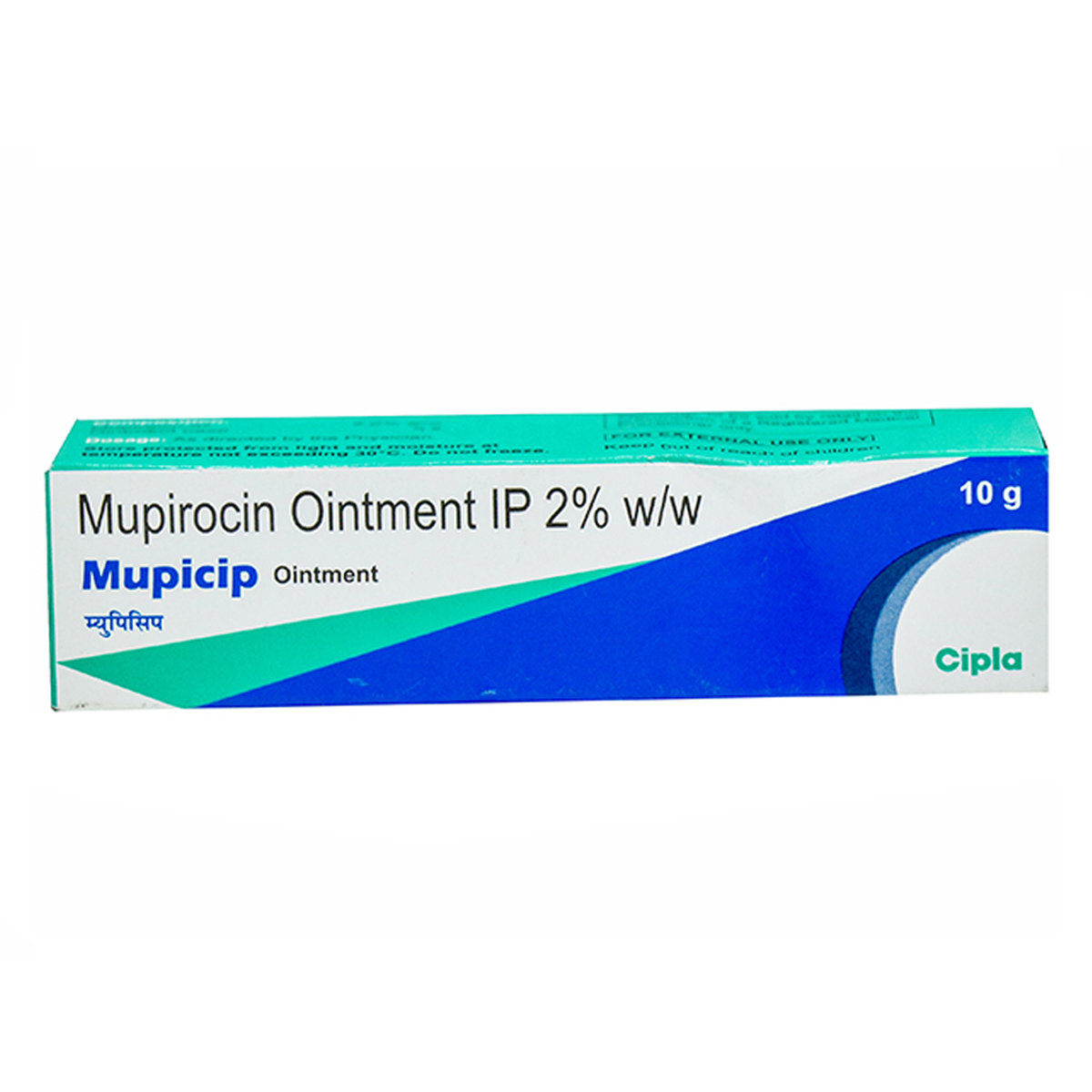
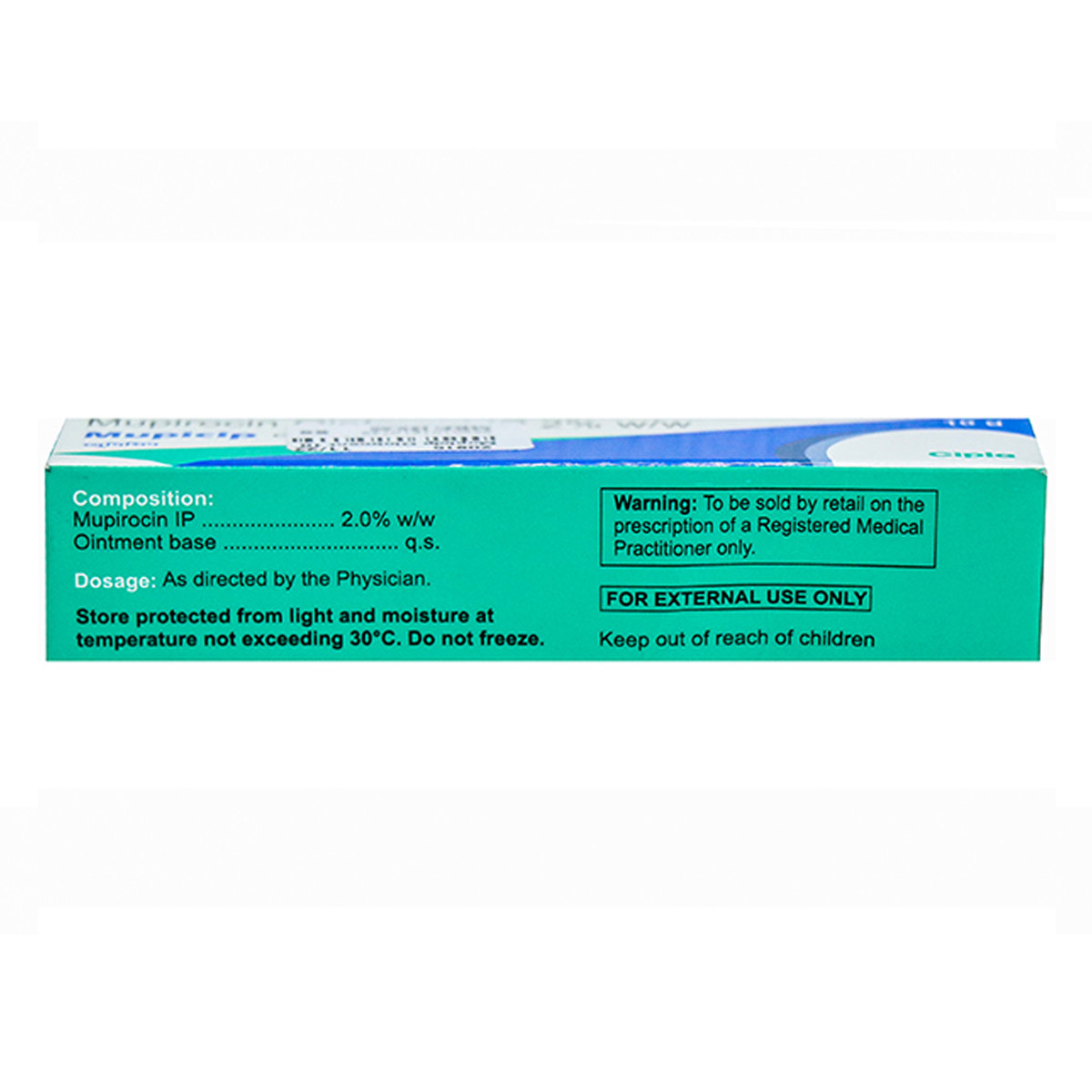


MRP ₹199.5
(Inclusive of all Taxes)
₹29.9 Cashback (15%)
Selected Pack Size:10 gm
10 gm ₹179.6
(₹17.96 per gm)
In Stock
5 gm ₹95.9
(₹19.18 per gm)
In Stock
Provide Delivery Location
Online payment accepted
 Prescription drug
Prescription drugWhats That
- Report the itching to your doctor immediately; they may need to change your medication or dosage.
- Use a cool, damp cloth on the itchy area to help soothe and calm the skin, reducing itching and inflammation.
- Keep your skin hydrated and healthy with gentle, fragrance-free moisturizers.
- Try not to scratch, as this can worsen the itching and irritate your skin.
- If your doctor prescribes, you can take oral medications or apply topical creams or ointments to help relieve itching.
- Track your itching symptoms and follow your doctor's guidance to adjust your treatment plan if needed. If the itching persists, consult your doctor for further advice.
- Skin rash caused by allergies is due to irritants or allergens. Therefore, avoid contact with such irritants.
- Consult your doctor for proper medication and apply an anti-itch medication. Follow the schedule and use the medication whenever needed.
- Protect your skin from extreme heat and try to apply wet compresses.
- Soak in the cool bath, which gives a soothing impact to the affected area.
- If you experience signs of skin allergies such as redness, itching, or irritation after taking medication, contact your doctor right away.
- To alleviate skin allergy symptoms, your doctor may change your medication regimen or offer tailored medication management advice.
- Your doctor may recommend or prescribe drugs to relieve discomfort.
- Cool compresses or calamine lotion can help relieve redness and itching on the afflicted skin area.
- Staying hydrated by consuming plenty of water can help relieve discomfort.
- Monitor your skin condition closely and promptly report any changes, worsening symptoms, or concerns to your healthcare provider.
- Change positions or take a break from activity to relieve symptoms, as stinging can disturb your regular patterns.
- Avoid postures that put much pressure on the body area where stinging is felt.
- If you have a vitamin deficiency, take supplements or change your diet.
- Exercise regularly to improve inner strength.
- Follow your doctor's instructions to prevent stinging.
- Massage the affected area gently to get temporary relief.
- Burning sensation is an abnormal side effect that needs medical attention. To relieve the burning feeling, your doctor may prescribe painkillers or antidepressants.
- Focused exercises can improve strength and reduce burning by soothing muscles.
- Change in lifestyle and improving nutrition can reduce the causes of burning sensation and provide relief.
- Your doctor may suggest nerve block injections as it is related to sensation in the skin.
- Burning feeling in a specific area would need mild electrical currents to reduce pain that targets the nerve affected. This practice must be done only if your doctor mentions it.
- Consult your doctor if you experience skin redness, itching, or irritation after taking medication.
- Your doctor may adjust your treatment plan by changing your medication or providing guidance on managing your erythema symptoms.
- Your doctor may recommend or prescribe certain medications to help alleviate symptoms.
- Apply cool compresses or calamine lotion to the affected skin area to reduce redness and itching.
- Stay hydrated by drinking plenty of water to help alleviate symptoms and keep your skin hydrated.
- Monitor your skin condition closely and promptly report any changes, worsening symptoms, or concerns to your healthcare provider.
- Apply moisturizer immediately after showering or bathing.
- Use a moisturizer containing lanolin, petroleum jelly, glycerine, hyaluronic acid or jojoba oil.
- Do not use hot water for bathing. Instead use warm water and limit showers and bath to 5 to 10 minutes.
- Apply a sunscreen with SPF-30 or higher.
- Avoid harsh soaps, detergents and perfumes.
- Do not scratch or rub the skin.
- Drink adequate water to prevent dehydration.
- Wear pants, full sleeves and a wide-brimmed hat while going out in the sun.
Drug-Drug Interactions
Drug-Drug Interactions
Login/Sign Up
Drug-Food Interactions
Drug-Food Interactions
Login/Sign Up
All Substitutes & Brand Comparisons
RX
M-Sys 2%W/W Ointment 10gm
Systopic Laboratories Pvt Ltd
₹126
(₹11.34/ 1gm)
36% CHEAPERRX
Mupicip 2% Ointment 15 gm
Cipla Ltd
₹241.5
(₹14.49/ 1gm)
19% CHEAPERRX
Mupi XL Ointment 15 gm
Hegde & Hegde Pharmaceutica Llp
₹268
(₹16.08/ 1gm)
10% CHEAPER
Product Substitutes
Author Details
We provide you with authentic, trustworthy and relevant information
Drug-Diseases Interactions
Drug-Diseases Interactions
Login/Sign Up
FAQs

Have a query?
Buy best Dermatology products by
Others
AYUR
FIXDERMA
BIODERMA
VENUSIA
CANDID
SELSUN
ABZORB
ATODERM
CIPHANDS
KETO
MINTOP
UVAVO
8X
MELALUMIN
MORR
OILATUM
REJUHAIR
SUNCROS
TETMOSOL
UNISON
UV DOUX
ATBRO SAFEXX
BETADINE
COLOPLAST
DR. MOREPEN
HAIR 4U
LA SCREEN
MEDERMA
RING GUARD
SHYN-ON
SOLSET
SUNSTOP
YUVINIE
A-DERMA
AHD
ALCONANZ
AQUAHOLD
AVARTA
AVENE
BIOLINE
BIOWRIGHT
CETRILAK
CUTICOLOR
CUTILOCK
DANDEL PLUS
DEOPHIN
DOUX
DYSIS
ENMASK 50
EXIZOL
FAIR INSTA
GETRYL
GORGEUS
GUNEERA
HAIR YUTH
HH MITE
I-GLOW
ITCH GUARD
KETOFLY
KETOMAC
KETOPZ
KETOSTAR
KZ
LIPZ
MANKIND
MEDRAYS
MELAGARD
MELNORA BLUV
MICROSTERILE
NO SCARS
OAKNET
ONABET
PARASOFT
PERCOS
PHOTON
PHOTOSTABLE
PHYSIOGEL
PROTEK
RADIBAN
RASHFREE
REGALIZ
RENOCIA
SALISIA
SEBANDRO
SEBORBAR
SESTRY
SOLASAFE
SOLECROSS
STERILLIUM
SUDERMA
SUN KROMA
SUNCLIP
SUNHEAL
SUNMATE
SUNTRIS
TAIYU
TEDIBAR
THERUPTOR
TRICOGRO
Glenmark Pharmaceuticals Ltd
Sun Pharmaceutical Industries Ltd
Klm Laboratories Pvt Ltd
Cipla Ltd
Canixa Life Sciences Pvt Ltd
Abbott India Ltd
Ajanta Pharma Ltd
Intas Pharmaceuticals Ltd
Dr Reddy's Laboratories Ltd
East West Pharma India Pvt Ltd
Alkem Laboratories Ltd
Atopic laboratories Pvt Ltd
Hegde & Hegde Pharmaceutica Llp
Brinton Pharmaceuticals Ltd
Torrent Pharmaceuticals Ltd
Amwill Healthcare Pvt Ltd
Leeford Healthcare Ltd
Palsons Derma Pvt Ltd
Oaknet Healthcare Pvt Ltd
Med Manor Organics Pvt Ltd
Micro Labs Ltd
Dermocare Laboratories Gujarat Llp
Fixderma India Pvt Ltd
Apex Laboratories Pvt Ltd
Mankind Pharma Pvt Ltd
Ipca Laboratories Ltd
Yaher Pharma
Systopic Laboratories Pvt Ltd
Menarini India Pvt Ltd
Ethinext Pharma
Nemus Pharmaceuticals Pvt Ltd
Skinocean Pharmaceuticals
Dermacia Healthcare
Inex Medicaments Pvt Ltd
Lupin Ltd
GlaxoSmithKline Pharmaceuticals Ltd
Talent India Pvt Ltd
Zydus Cadila
Kivi Labs Ltd
Zydus Healthcare Ltd
Hbc Dermiza Healthcare Pvt Ltd
Mrhm Pharma Pvt Ltd
Regaliz Medicare Ltd
Sol Derma Pharmaceuticals Pvt Ltd
Newtrimed Healthcare Pvt Ltd
Wallace Pharmaceuticals Pvt Ltd
Eskon Pharma
Glowderma Lab Pvt Ltd
La Pristine Bioceuticals Pvt Ltd
Mohrish Pharmaceuticals Pvt Ltd
Percos India Pvt Ltd
Rockmed Pharma Pvt Ltd
Macleods Pharmaceuticals Ltd
Praise Pharma
Ethicare Remedies Pvt Ltd
Kaizen Drugs Pvt Ltd
Aurel Biolife
Rely On Pharmaceuticals
Wockhardt Ltd
Galcare Pharmaceuticals Pvt Ltd
Elder Pharmaceuticals Ltd
Indiabulls Pharmaceuticals Pvt Ltd
La Med Healthcare Pvt Ltd
Biocute Life Care
Yap Bioceuticals
Yash Pharma Laboratories Pvt Ltd
Zee Laboratories Ltd
Apple Therapeutics Pvt Ltd
Adonis Laboratories Pvt Ltd
Albatross Healthcare Pvt Ltd
Galderma India Pvt Ltd
Prism Life Sciences Ltd
FDC Ltd
Alniche Life Sciences Pvt Ltd
Salve Pharmaceuticals Pvt Ltd
West Coast Pharmaceuticals Pvt Ltd
Dermarex HealthCare India Pvt Ltd
Arka Vital Science Pvt Ltd
Dermajoint India
Gary Pharmaceuticals Pvt Ltd
Grace Derma Healthcare Pvt Ltd
Karlin Pharmaceuticals & Exports Pvt Ltd
Skinska Pharmaceutica Pvt Ltd
Uniza Healthcare Llp
Alembic Pharmaceuticals Ltd
Cadila Healthcare Ltd
Cadila Pharmaceuticals Ltd
Cosmofix Technovation Pvt Ltd
Human Pharmaceuticals
Indolands Pharma Pvt Ltd
Lyra Laboratories Pvt Ltd
Akumentis Healthcare Ltd
Entod Pharmaceuticals Ltd
Iceberg Health Care Pvt Ltd
Jenburkt Pharmaceuticals Ltd
P and P Dermaceuticals Pvt Ltd
Dabur India Ltd
Indchemie Health Specialities Pvt Ltd
Olcare Laboratories Pvt Ltd
Unison Pharmaceuticals Pvt Ltd
BODY CREAM
Body Lotion
Face Cream
Shampoo
Sun Screen
Face Gel
Soap
Face Wash
HAIR SOLUTION
Face Serum
BODY GEL
Hair Lotion
Hair Serum
Dusting Powder
ANTISEPTIC
FACE CLEANSER
Face Lotion
Body Wash
Body Spray
Eye Cream
FUNGAL INFECTION
Foot Cream
Conditioner
Eye Gel
Cleanser
Hair Cream
Hair Oil
Face Mask
Hair Gel
Sanitizer
Hair Spray
Moisturiser
Skin Ointment
Lip Balm
Capsule
Eye Serum
Intimate Wash
Specialty Supplements
Hand Cream
Facial Spray
SPECIALITY SUPPLEMENT
Face Toner
MEDICATED SHAMPOO
Tablet
Talcum Powder
BABY SUNSCREEN
Body Butter
Body Scrub
DIAPER RASH CREAM
EYE SOLUTION
FACIAL WIPE
Gargle
Hand Wash
Intimate Spray
Lip Serum
Lubricant Gel
MEDICATED CREAM
Nail Polish
VITAMIN D


